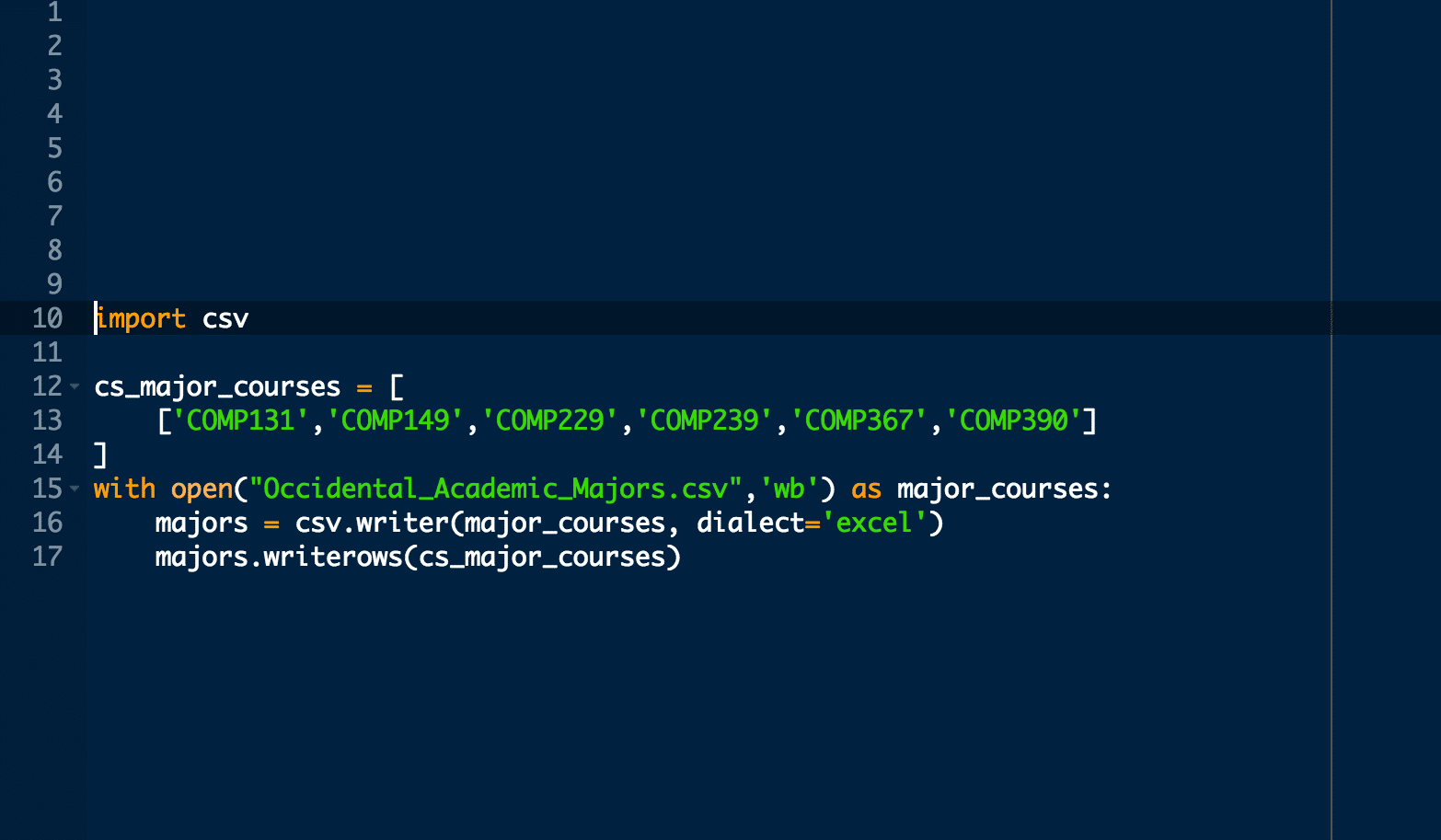In Spring 2017, the faculty approved computer science as the newest major at Occidental College after a faculty vote. This semester, students may officially declare a computer science major for the first time in the school’s history.

Professor Kathryn Leonard, department chair of computer science, said she views the department’s youthfulness as an advantage moving forward.
“[Computer science] is constantly changing, evolving and progressing. One of the advantages that we have of being new is that we aren’t fighting some sort of legacy of old classes that are no longer relevant to the field of computer science,” Leonard said.
Teagan Mucher (sophomore) began taking computer science classes in high school and said he recognizes the usefulness of these skills.
“Our whole world is high-tech and will become increasingly so and an understanding of what is at the core of technology is so incredibly useful. You can use computer science to create and solve problems and build things that are helpful,” Mucher said.
Computer science began as a minor in the mathematics department in 2011. According to Jim Tranquada, director of communications and community relations, Media Arts and Culture (MAC) was the last new major created in Fall 2016.

According to Professor Justin Li, computer science majors are required to take 12 classes in the major: six core classes and six elective classes based on a specific pathway. A traditional computer science and mathematics pathway is available to students who wish to continue on a theoretical path. Students may opt to incorporate other disciplines in a pathway called CS+X. The X signifies a theme or another subject that incorporates computer science such as Politics, MAC, economics or cognitive science.
“The idea is that computer science is not just this technical discipline. It’s not just theory. It’s also being used in lots of places,” Li said.
The interdisciplinary nature of CS+X highlights the varied interests of Occidental students and the broad liberal arts curriculum, according to Li.
“We wanted to emphasize the connection between computer science and other disciplines because we don’t know what students might be interested in,” Li said.

While Occidental now has a computer science major, students may also continue to take classes at the California Institute of Technology (Caltech). Professor Jeff Miller, assistant professor of mathematics and computer science, said that by taking classes at Caltech in conjunction with class at Occidental, students have access to a liberal arts program and the strength of the engineering focus of Caltech. Miller said that he believes the expansion of Occidental’s computer science program will encourage more students to take classes at Caltech.
“[The computer science department] has people who have interests in distinct areas of computer science, and at first glance, you might think that encourages people to just stay here, but what I think is it empowers people to look farther to see the vast array of information that they can learn something about. I think that we will see a lot more students go to Caltech,” Miller said.
As of Oct. 3, there are 21 declared computer science majors, eight of whom are double majors, according to Tranquada. One of these 21 students is Chloe Zeller (junior), who said she declared a computer science major over the summer. Zeller took Fundamentals of Computer Science in her first year at Occidental and chose to continue taking classes in the department with the original intention of minoring in computer science. After the creation of the computer science major, Zeller said she noticed a shift in the prevalence of interest in computer science within the student community.

“Now everyone is talking about [computer science] more. I love that first years are coming in and talking to upperclassmen and are already starting to move towards a major,” Zeller said.
Zeller said that she credits the growing community of supportive peers as an important resource for those currently taking computer science courses or considering them.
“There is a growing community of encouragement and pushing people from all different types of backgrounds to pursue computer science,” Zeller said. “It’s not easy, but it’s something I encourage everyone to try.”
Leonard said he is working to create an inclusive department that allows students with all levels of experience to succeed.
“Computer science has typically been one of those fields that weeds people out who don’t fit the narrow box of ‘Big Bang Theory,’ for example, and I would say that happens to the field’s detriment,” Leonard said. “We are really aiming an effort as we build this program to even the playing field so that anyone who is interested in computer science, even if they have never done one line of coding, can come into the program and graduate with a computer science degree or learn how to code.”
![]()




































